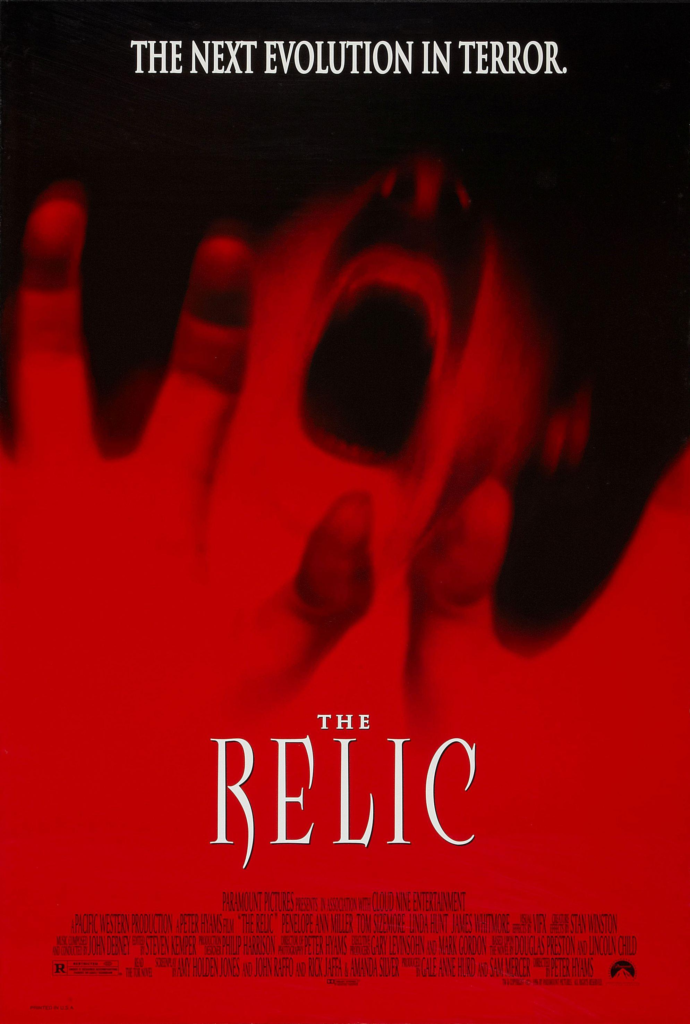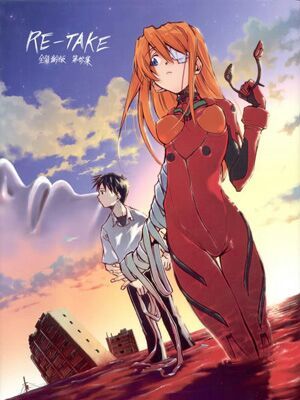Oh. Sorry. Did you think we were done? No, no, no. Thrice Upon a Time may have been the perfect capstone for this Evangelion retrospective, but we’ve still got a coda before we conclude this completely. See, one of the things that has allowed Eva to become the phenomenon it is is its fanbase. And from that fanbase has sprung forth a fountain of fanfiction, various Eva geeks all putting their own spins on the characters and world we all love so much. So, if the Rebuilds were the Avengers: Endgame of this series, let’s end this with a Far From Home.
RE-TAKE
RE-TAKE is an Evangelion doujinshi by Studio Kimigabuchi. It was originally a hentai work, before having its sex scenes excised for a SFW edition (which is what I read). And it is also one of the best pieces of Eva media I have ever encountered. It’s been a while since I’ve found something so compelling I stayed up late to read it, but there was something about this work that made it truly fascinating to me.
RE-TAKE is truly something special, but I have difficulty in describing just what about it compels me without relying on shorthand from other geek media. Like, the immediate way I think to describe it is “It’s like TNG’s ‘Tapestry’, mixed with Alan Moore’s Swamp Thing, and a dash of Michael Moorcock’s Eternal Champion Saga.” But to anyone not familiar with those three works, such a description is probably nonsensical. And yet, I can’t think of a more apt description! Though, if I may try…
RE-TAKE is set after the events of EoE. Shinji is lying on the red sea beach, feeling miserable and disgusted with himself, and desperately wishing he could fix all the mistakes he made. Then, suddenly, he wakes up and it’s Episode 16 again. Shinji is in the hospital after getting out of Leliel, and, now convinced the events he witnessed were simply a possible bad future the Angel showed him, Shinji resolves to get things right this time.
It doesn’t quite work like he hoped though. Because Shinji now knows what Rei is, he ends up drawing away from her, which causes her to eventually attempt suicide. And while his initial strategy is to keep his synchro rate down so that Asuka doesn’t lose her confidence like she did originally, when she finds out about the deception she’s even more furious than she was before. Also, Shinji’s synchro rate is even higher than it ever was. Unusually high. Some might even say… unnaturally high. And then to top it all off, a ghostly image of Asuka on the red sea that only Shinji can see pops up every now and then to taunt him, while Rei mentions off-handedly to Misato that Shinji is no longer in this world.
Eventually, Shinji and Asuka work things out and start a romance. But no matter how Shinji tries to do things differently, the outcomes of his decisions only become different, not better. Even as, just like Gendo, Shinji grows to do increasingly amoral things in his desperate quest to remake the future and resurrect a lost love, events never work out like he wants or expects them to. And all the while, Ghost-Asuka continues to taunt him with his actions in EoE.
There’s an expertly-done feeling of creeping dread that permeates every corner of RE-TAKE. We know something is wrong, and that more things will go wrong, but we don’t know just how it will all get worse, or if Shinji will pull through, realize he’s making the same mistakes as his father, and course-correct. And all the while, there are hints that there’s just something off about this world, and about Shinji.
To explain just what those things are would delve into the realm of spoilers. But without discussing the plot twists too much, two things that stand out to me about RE-TAKE are its message and its portrayal of Shinji. Despite predating that film by several years, the plot of RE-TAKE is essentially telling Shinji that he cannot redo his mistakes from the past. But he can learn from them, and maybe do some good in the present. Also, if Shinji isn’t really Shinji, but something that was made manifest from his despair and given his shape, is it still Shinji? What is it that makes Shinji Shinji? This is a question that RE-TAKE occupies itself with, and while it has echoes of the Eternal Champion in its answer, I don’t think Moorcock ever tried what RE-TAKE does.
One last warning for potential readers, the last of the three volumes of SFW RE-TAKE may seem to drag on a bit near the end. But the reason for this is that they stitched the distant epilogue to this edition of the story, despite it taking up as much space as a regular NSFW volume did. This isn’t to say the ending is bad, just that the “proper” ending is at the midway point of Vol. 3, while the rest is simply an additional story.
So for now, I think that’s the end of this retrospective. There’s still a lot more Eva for me to cover. I never reviewed any of the games, after all, and there’s still all the manga I couldn’t get my hands on. Plus, there’s who-knows-how-many documentaries and nonfiction works on the production process of Evangelion. I haven’t even interviewed Nathan Collins yet!
The point is, I’m not fully finished with Eva just yet. But as for this sustained, singularly-focused series of reviews, I think we’ve reached a point where things can comfortably end. If I return to the Evangelion well sooner or later, it’ll more likely be later. I’m sure both my loyal readers are eager to see me cover more than just Eva. And if I did nothing but Eva reviews, I think my enthusiasm for the franchise might start to wane. So I’m leaving the rest of my Eva articles for another day. In the meantime, feel free to recommend me Eva fanfics, which I’ll happily gobble up as long as I can.



